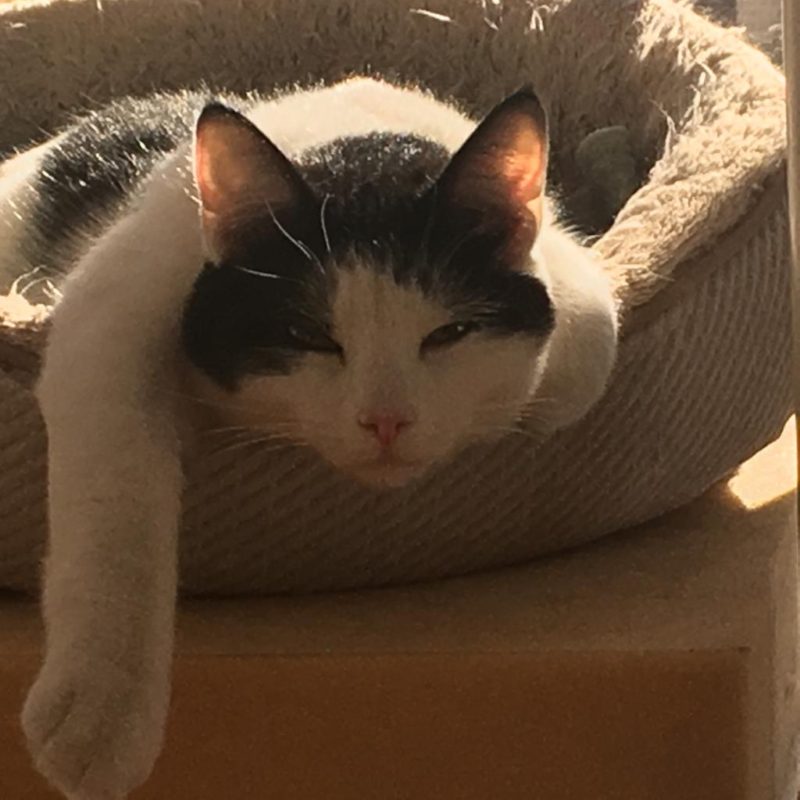The Six Brothers From Elberta – A Heartwarming Story
December 4, 2019
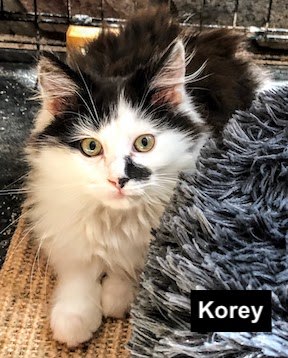
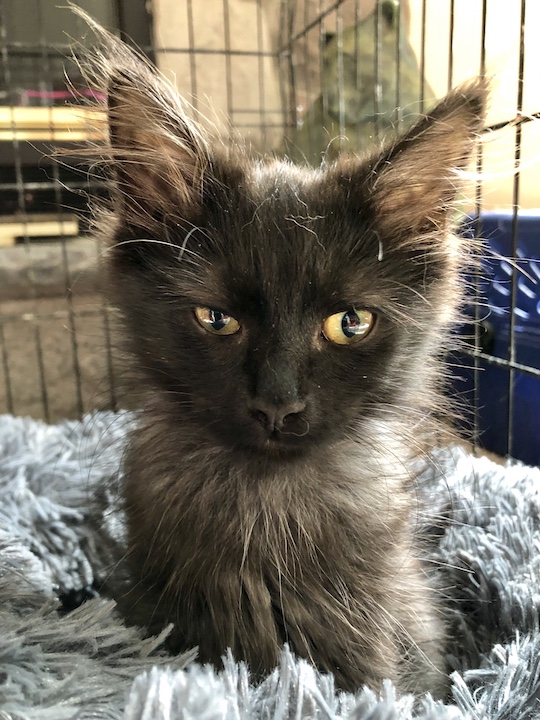
Wolfie
A typical Elberta winter will see almost 100 inches of snowfall, frequent howling winds and temperatures that drop into the single digits. These are tough conditions for feral cats to survive through—and was the destiny awaiting six kittens born this past spring before Community Cats of Benzie County (CCBC) and their volunteers stepped in.
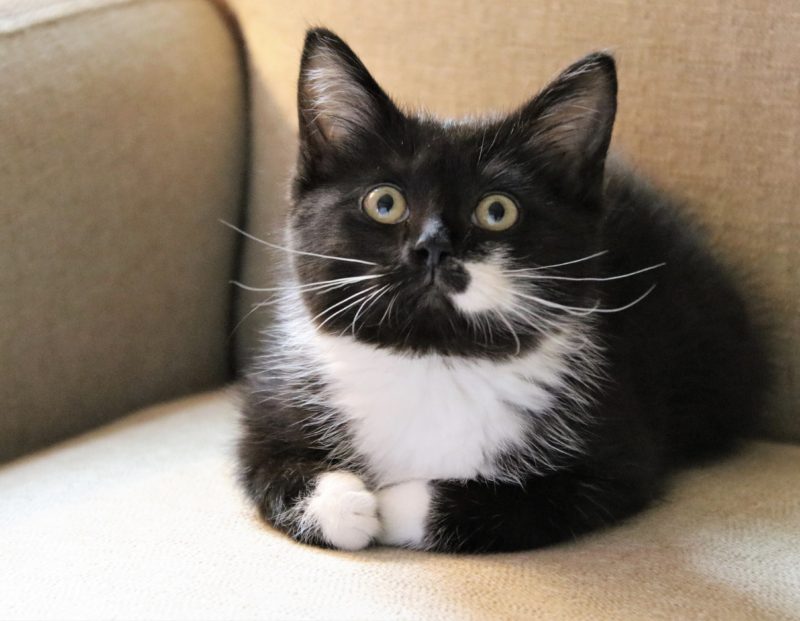
Pauly
In June, an Elberta resident noticed some kittens hanging around an abandoned house in her neighborhood. Familiar with CCBC, she reached out to see if they could help. After setting out live traps for a night, six energetic feral male kittens were caught. Once they were examined, it was clear the kittens were around three months old and in relatively good health.
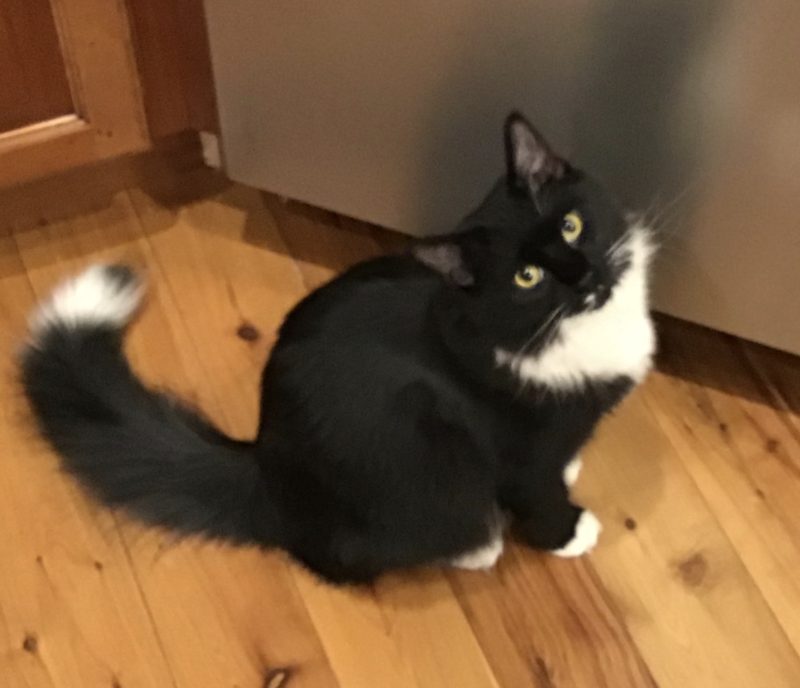
Felix
While CCBC’s mission is to trap, neuter and release feral cats to help control the feral cat population, when they take in young kittens, they make best efforts to get them adopted into forever homes. This is the preferred solution, allowing the kittens to live their full lives indoors, where they are provided nourishment and protected from traffic, inclement weather, attacks from other animals, feral diseases and stress. The average lifespan of a free-roaming cat is less than 3 years, whereas the lifespan of an indoor cat averages 15 to 18 years, with many living into their twenties!
The rescued kittens were around 12 weeks old, and typically, there is a narrow window of opportunity between 4-8 weeks of age to easily tame feral or under-socialized kittens. Unfortunately, if kittens haven’t had human contact before the age of 12 weeks, they typically will never lose their fear of humans.
If it is determined that cats are too feral for adoption, they will be given a health exam, spayed/neutered, “ear-tipped”* and brought up to date on their immunizations and either returned to an established colony that is being tended to by human caretakers or put up for adoption as a barn cat, where they will live outdoors with minimal human contact.
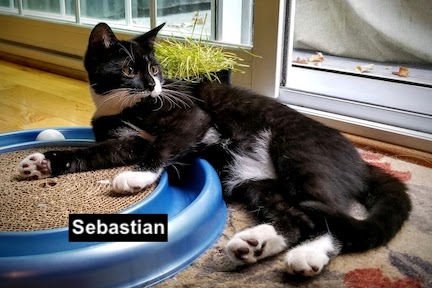
The Elberta kittens did show fear of human contact—hissing and cowering when any attempt was made to pick them up. However, it was also observed that they weren’t scratching or trying to bite their caretaker, so the decision was made to see if there was still time to socialize them to the point where they could be successfully adopted. Pauly, Sebastian, Korey, Wolfie, Ringo and Felix were going to be given an opportunity to live full, comfortable lives as indoor cats!
To give the kittens the best chance at being socialized, they needed to be separated for fostering. The foster families also understood that fostering these semi-feral kittens was going to take extra work to help them break through their wariness and be able to create trusting lasting bonds with humans. That required more interaction with the kittens, including hand feeding, and lots of cuddle time. It also was important to keep the kittens in areas where they would have almost constant interaction with humans and other pets.
At first, the kittens would try to hide and resist human interaction—hissing and batting whenever approached. But slowly, there were signs that the kittens were responding to the gentle, constant attention they were receiving. Over time, the kittens would purr while they ate their food on the lap of their caretaker, and when picked up and held, they would relax and fall blissfully asleep. It was an uneven road, however, with occasional setbacks, where a kitten would now and then dash to find a hiding place under a bed or behind furniture far from human activity. After 3-4 weeks of this focused interaction, the kittens were showing confidence in creating bonds with humans and were socialized enough to be adopted into forever homes.
Although more comfortable being around humans, they were still far from being like kittens that have had human interaction from birth. While they understood that humans provided food and companionship, the kittens were still not completely at ease. It was important for anyone adopting one of them to understand this and continue to help the kittens acclimate to living indoors with humans once adopted.
Luckily, over time and a careful screening of potential adopters, all six of the boys have ended up in wonderful homes! The families that were fostering Ringo and Felix had fallen in love with their kittens and adopted them straight away into their families. When the fostering family can’t give up the kitten or cat they had planned to only help over a short time period, this is affectionately referred to as a “foster fail.” Sebastian and Wolfie were adopted by different families who saw them at the Frankfort Art Fair, where CCBC had put up a booth for adoptable kittens. The last two, Korey and Pauly, found their forever homes through web postings on Petfinder.
As of late November—with the temperature having dropped at times into the 20s and Elberta already having experienced a few inches of snow—the six brothers are enjoying the comfortable life of indoor cats, bringing love and amusement to their families! They have come to enjoy and appreciate the care and love of their families and return that love. Thanks to CCBC and their volunteers, this is a far cry from where these kittens started life just nine months earlier!
This holiday season, Community Cats of Benzie County is grateful for our volunteers and other supporters. We cannot do what we do without the help of volunteers—including those who foster our kittens and cats—and your donations. As we close out 2019, please consider making a year-end, tax-deductible donation to CCBC at benziecats.org/donate. Should you be interested in volunteering with CCBC, email us at info@benziecats.org. Thank you, and happy holidays to you and yours!
*In “ear-tipping,” the tip of the left ear is removed at the time of neutering. This way, community caregivers and the general public can see from a distance that these cats have been spayed/neutered and vaccinated.
